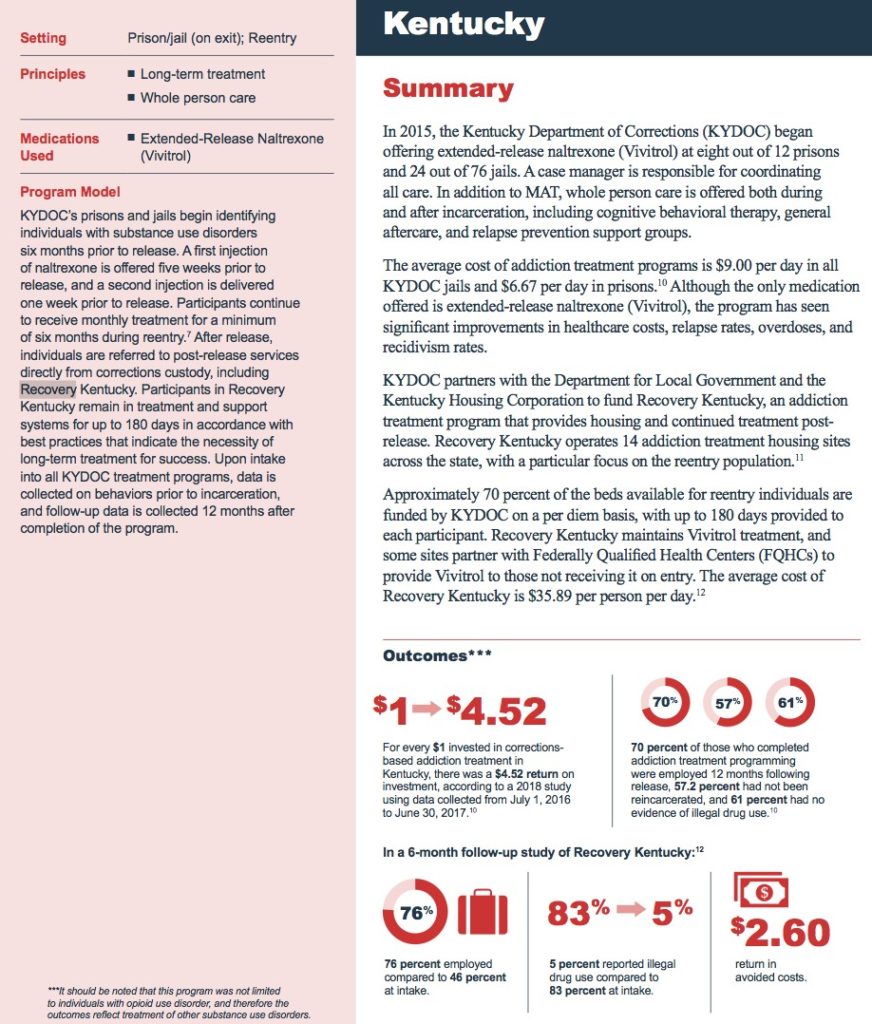PTACC’s First-Ever National Deflection Week Highlights the Importance of Non-Arrest Pathways
As the definitive voice regarding deflection and pre-arrest diversion, the Police Treatment Community Collaborative (PTACC) is proud to host America’s first-ever National Deflection Week this month from July 16–22. The event encourages partners and community members to showcase their outstanding work via social media and in-person events in their respective communities with the goal of spreading awareness around the nationwide policing movement of deflection.
About PTACC
PTACC provides vision, leadership, advocacy, and education to facilitate the growth and practice of deflection and pre-arrest diversion in all its forms, including programs that incorporate co-responder and community responder models both nationally and internationally. Its mission is to strategically enhance the quantity and quality of community behavioral health and social service options through engagement in deflection and pre-arrest diversion.
Watch This Animated Video To Learn More
Click on the image to the right to learn how police deflection programs reduce crime and substance use through non-arrest pathways that connect individuals to treatment options. Instead of traditional police intervention and criminal justice involvement, deflection relies on law enforcement as the referral source to community-based drug treatment and mental health services even before a person is in crisis.

SAMHSA Rule Changes To Benefit Those with SUDs
The Substance Abuse and Mental Health Services Administration (SAMHSA) recently announced a plan to update federal rules with the goal of improving care for individuals with a Substance Use Disorder (SUD). The two proposals, which can be found in more detail below, are currently open for public comment.
Proposed Rule: Confidentiality of Substance Use Disorder (SUD) Patient Records
According to SAMHSA, this proposed rule would make changes to current federal rules that protect SUD patient privacy under what is known as 42 CFR Part 2. SAMHSA explains that the proposed changes, which are intended to address “barriers to information sharing by patients and among health care providers”, were developed to comply with a recently passed federal law requiring the agency to better align SUD patient privacy rules under 42 CFR Part 2 with HIPAA Privacy Rules. The agency is currently receiving public comment on this proposed rule change through January 31, 2023. The SAMHSA press release, which includes additional information about the proposed rule, can be found here. The proposed rule, along with information about submitting a formal public comment to SAMHSA, can be found on the Federal Register website linked here.
Proposed Rule: Medications for the Treatment of Opioid Use Disorder
This proposed rule change would, among other provisions, make permanent COVID-related rules changes regarding the treatment of opioid use disorder to allow take home doses of methadone and the use of telehealth in initiating buprenorphine at opioid treatment programs (OTPs), and expand the definition of OTP treatment practitioners. The agency is currently receiving public comment on this proposed rule change through February 14, 2023. The SAMHSA press release, which includes additional information about the proposed rule, can be found here. The proposed rule, along with information about submitting a formal public comment to SAMHSA, can be found on the Federal Register website linked here.
KIPRC To Evaluate Kentucky SUD Recovery Program
The Kentucky Injury Prevention and Research Center (KPIRC) has long been a critically important Fletcher Group partner with KPIRC Director Dr. Terry Bunn serving as the Fletcher Group’s Co-Investigator and Academic Partner. To further its good work, KIRPC was recently awarded a $2.2 million grant from the CDC (Centers for Disease Control and Prevention) National Center for Injury Prevention and Control to comprehensively evaluate the Kentucky Access to Recovery program (KATR).
Working together with the Fletcher Group and the Federation of Appalachian Housing Enterprises (Fahe) which administers KATR, KIRPC will evaluate the long-term effectiveness of the KATR program. Researchers will evaluate the program’s effectiveness at reducing the risk of non-fatal and fatal drug overdoses by increasing an individual’s recovery capital, reducing resumption of illicit substance use, and promoting re-linkage to recovery support services if illicit substances are resumed. The research project will follow approximately 300 KATR program participants over a 12-month period.
“The results of this evaluation are essential to understand the importance of recovery support services in building recovery capital to achieve and sustain long-term recovery from substance use disordersƒ
,” said Bunn, who is also the principal investigator on the grant.
The KATR program was launched in 2019 with funding from KORE, the Kentucky Opioid Response Effort, and has grown from 15 to 37 counties across Kentucky. The program’s purpose is to help individuals who are recovering from opioid use disorder or stimulant use disorder or who have a history of overdosing from opioid use. Recovery support services are free to low-income individuals in eligible service areas who are in treatment or who have completed treatment within the past year.
The KATR program does not pay for treatment itself but for resources that support recovery, such as housing and transportation, and is designed to supplement but not replace existing programs. Because KATR provides recovery support assistance when other programs cannot, individuals in the program must first attempt to receive funds from other existing programs.
“From preliminary studies of one of the sites, we have learned that the program is bringing positive benefits to participants and to the community,” said KATR Director Joni Tamalonis. “In order for more people and places to have access to recovery support services, it is important that a rigorous evaluation of the program occur so that improvements, replications or expansion can potentially occur.”
The Fletcher Group will serve as a sub-awardee with Founder and Chief Medical Officer Dr. Ernie Fletcher and Fletcher Group Director of Research and Evaluation Robin Thompson acting as co-investigators. The Fletcher Group will assist with development, implementation, and analysis of the project.
“We are thrilled to continue partnering with Dr. Bunn and the KIPRC research team on this project,” said Dr. Fletcher. “Continued efforts to evaluate recovery support services and interventions aimed at minimizing barriers to those recovery support services are crucial to empowering individuals with a substance use disorder on their recovery journey.”
A process evaluation of the KATR linkage program will also be conducted to determine whether the KATR program is acceptable and accessible to populations with illicit substance use disorders who are linked to recovery support services. It will also help identify barriers and facilitators to KATR program implementation and assess the extent to which the KATR program was implemented as designed.
Fletcher Inducted Into Kentucky Recovery Hall of Fame
Fletcher Group Founder and Chief Medical Officer Dr. Ernie Fletcher was inducted into the 2022 Kentucky Recovery Hall of Fame at the fourth annual Kentucky Chamber of Commerce Recovery in the Workplace Conference June 21, 2022 in Lexington.
“Our 2022 Kentucky Recovery Hall of Fame inductees have spent years pioneering a comprehensive approach to recovery in the commonwealth,” said Tim Robinson, President and CEO of Addiction Recovery Care. “They exemplify the collaborative effort it takes to ensure every Kentuckian has the best opportunity for sustained recovery. We’re grateful for their leadership and commitment to ending the addiction epidemic once and for all.”
The awards are sponsored by Recon Ky, a consortium working to promote long-term recovery in Kentucky.
Fletcher and former Governor Steve Beshear received the Rogers Award which recognizes Kentucky public officials who have advocated for legislation and policies that address the addiction crisis and help Kentuckians with substance-use disorders reach long-term recovery.
During his tenure as governor, Fletcher established a recovery housing program called “Recovery Kentucky” that is still in operation.
“While addiction is still one of the commonwealth’s most pressing issues, I’m proud of the comprehensive and collaborative approach Kentucky has taken to address this public health crisis,” said Fletcher. “Since leaving public office, I’ve kept my commitment to helping Kentuckians return to healthy, purposeful, addiction-free lives, and it is an honor to be inducted into the Kentucky Recovery Hall of Fame.”
A more detailed account of the awards ceremony can be found at:
Fletcher Group RCOE Receives Additional HHS Funding
Senator-McConnell-Helps-Secure-3.3-Million-for-Fletcher-Group-to-Help-Combat-Opioid-Epidemic-in-Rural-KentuckySAMHSA: “A Model of Evidence-Based Best Practices”
The Kentucky Recovery program upon which the Fletcher Group’s recovery model is based has been cited as a model “Evidence-Based Program” by the federal government’s Substance Abuse and Mental Health Services Administration (SAMHSA). Page 42 from the report, reproduced below, explains why.

Mitch McConnel Announces POWER Grant to Fletcher Group
Turn the pages of the announcement by hovering your mouse over the lower left corner of each page.
McCONNEL-GRANT-McConnell-Supports-Job-Training-and-Opioid-and-Substance-Abuse-Epidemic-Response-in-Appalachian-RegionARC Names POWER Grant Recipients
Turn the pages of the announcement by hovering your mouse over the lower left corner of each page.
POWER-Grant-Awarded-to-Fletcher-Group-February-2019_compressed